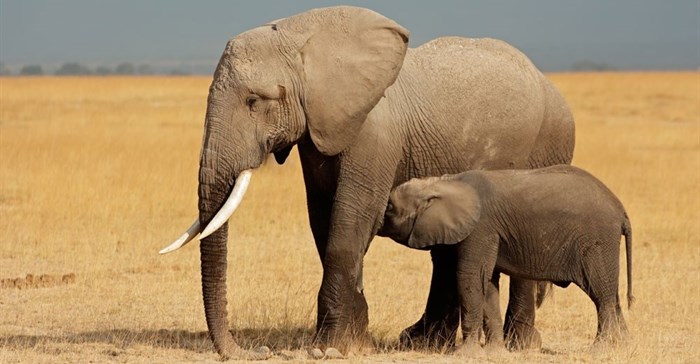In a raid on a private home in Matola, Mozambique more than one ton of ivory and 65 rhino horns were recently seized.
A Chinese national has reportedly been arrested. The cache included 340 elephant tusks weighting 1,160kg and 65 rhino horns weighing 124kg. Authorities said some of the tusks were still bloody, indicating they were from recently poached elephants.
The International Fund for Animal Welfare (IFAW) said that while it applauded any confiscation of illegal ivory, it was crucial that governments looked beyond seizures as the answer to disrupting trafficking.
"Seizures of ivory are always good news in the fight against poaching and illegal trafficking because they indicate improved levels of law enforcement, but seizures are the public face of a very tragic scenario that is killing up to 50,000 elephants a year and shows no sign of abating," said Jason Bell, director IFAW Southern Africa and Director of IFAW's Elephant Programme. The IUCN says the African elephant population currently stands at 470,000 - down from 550,000 in 2006.
Increase in poaching
Earlier this month, the South African government announced that rhino poaching during the first quarter of 2015 had outstripped the same period last year, with 393 rhinos poached countrywide between January and 31 April 2015, 290 of those were killed in the Kruger National Park which shares its long eastern border with Mozambique.
"The only way countries are going to stop poaching of elephants and illegal trade is by cooperating with agencies such as Interpol, and the law enforcement bodies of other governments to map and profile those behind this transnational criminal activity and dedicate the resources needed to reduce the capacity of those who seek profit from ivory trafficking.
"There is a great need to focus on strategies which seek to deter and halt the killing of these magnificent creatures," Bell said.
Most illegal ivory is destined for Asia, in particular China, where it has soared in value as an investment vehicle and is coveted as 'white gold'. Availability of legal ivory in China purchased from the stockpile sale in Southern Africa in 2008 has, in turn, boosted demand encouraging illegal ivory trade and the poaching of elephant to meet market needs.















































